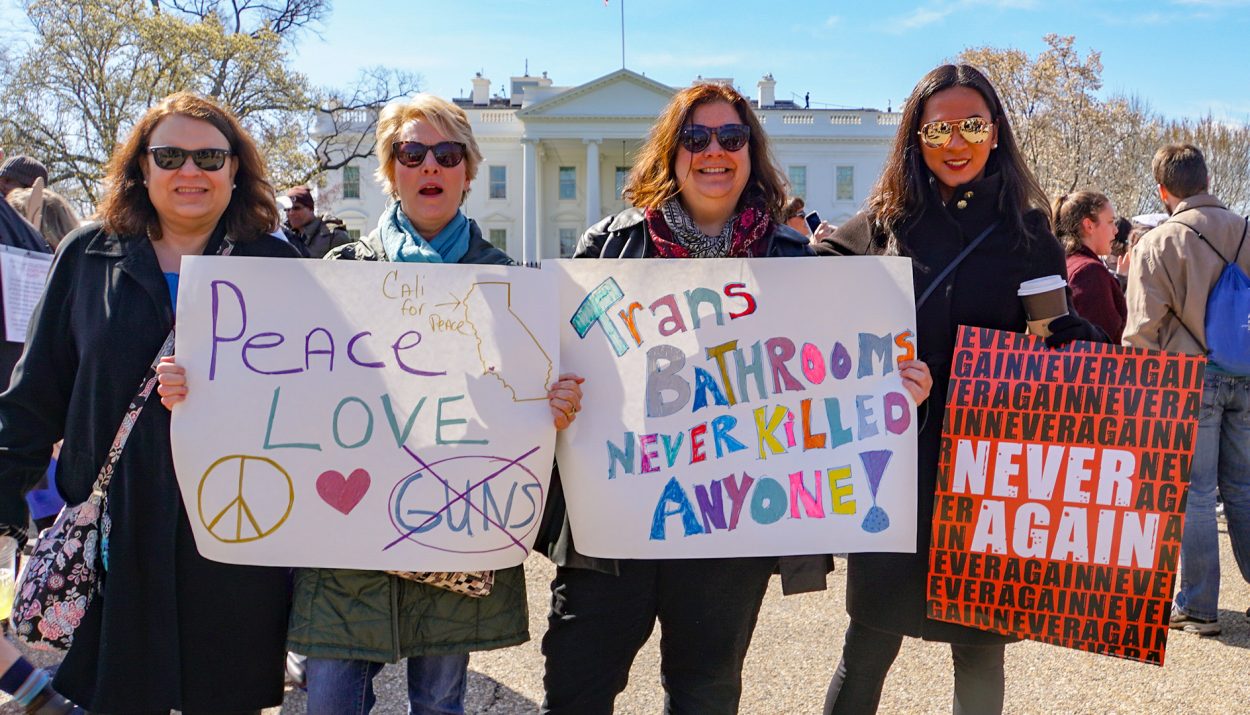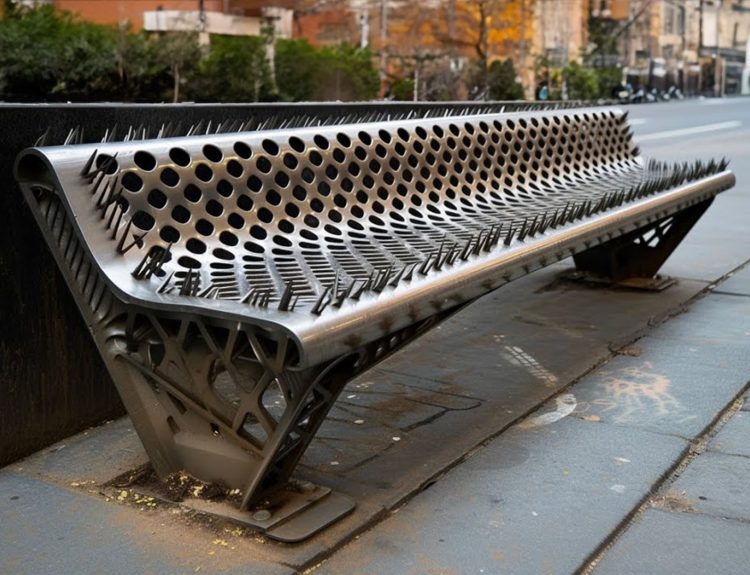In the United States and across the world, there are battles taking place over which bathrooms transgender people should use. In some cases, disputes are handled privately. In others, they work their way through the courts. The US Supreme Court is the ultimate authority and has the right to hear (or refuse to hear) cases. That’s what happened with a recent case in Indiana.
Why Is There Disagreement About Trans Rights?
Transgender people are some of the most marginalized people in the world. Their rights are often denied. The cause may be pure bigotry. It may also be that people who have never felt out of place in their bodies can’t understand what it’s like to be trans. When it’s the former, there’s hope for people to change their views.
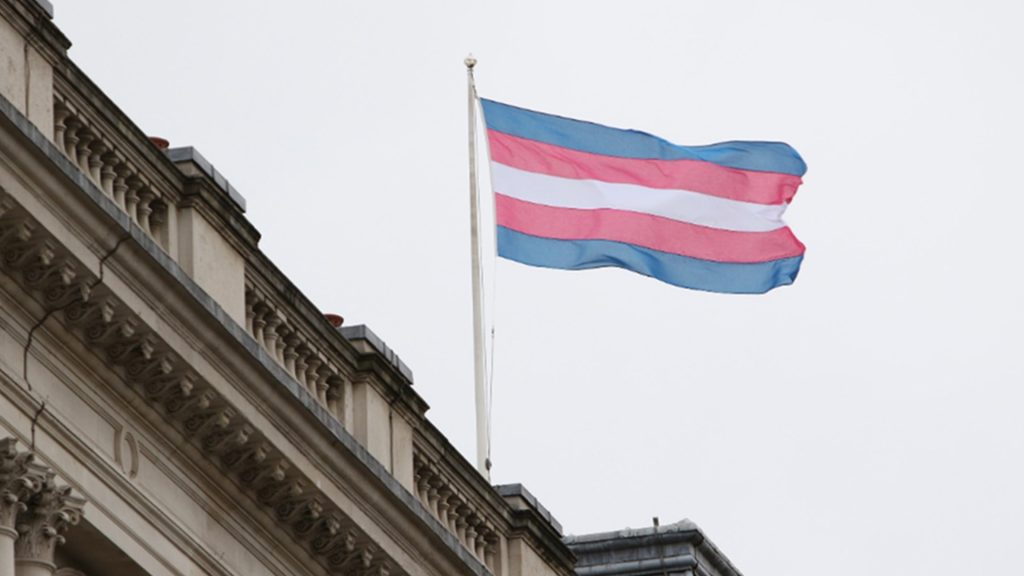
Trans people and their allies understand that it’s not right to deny someone basic human rights. We all have the right to be who we are as long as we’re not hurting anybody else. There are some who believe that transgender people should be denied their rights on religious or moral grounds. Many arguments arise out of these beliefs.
Which Bathroom Should Transgender People Use?
One of the most persistent issues that arises in relation to transgender rights is which bathroom they should use. Some believe that they should use the bathroom designated for the gender they were assigned at birth even if they have had gender-affirming surgery. Of course, using a bathroom that doesn’t align with their gender can be upsetting.
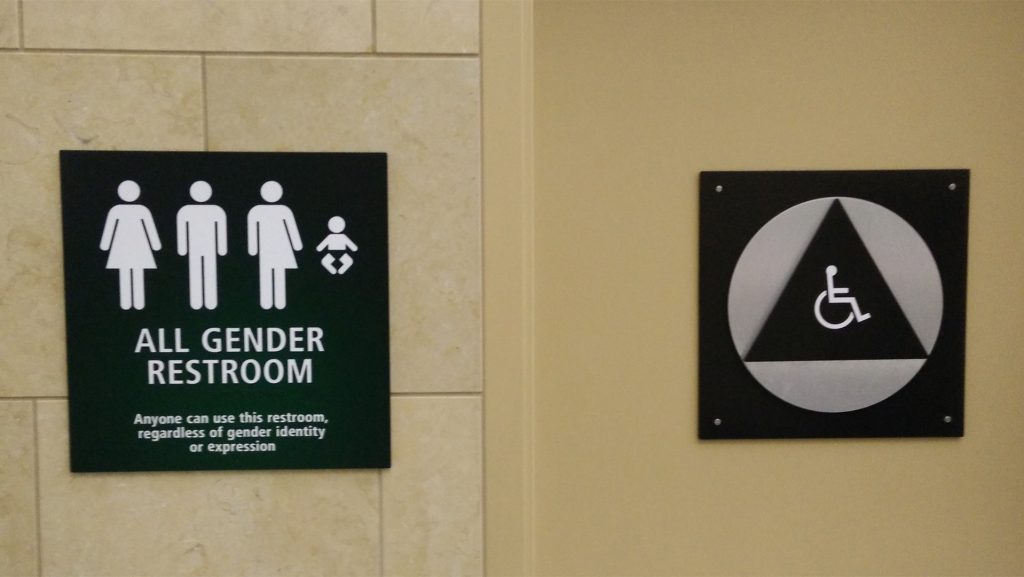
Not everybody agrees. Trans activists point out that for a trans woman to use the men’s bathroom might feel frightening and even be dangerous. Some who oppose this idea believe it’s equally as dangerous for a trans woman to use the women’s restroom. People on both sides may believe they’re correct and be unwilling to compromise.
What Happened in Martinsville Indiana?
The lawsuit in Martinsville, Indiana, has to do with a transgender student and which bathroom he should use. The Metropolitan School District decreed that the young man, who is referred to only as A.C., should not be allowed to use the boys’ bathroom in his school. The boy argued that he should be and that’s how the case started.

Instead, the district said he had two choices. The first was to use the girls’ bathroom, which would match the gender he was assigned at birth. The second was to use a private bathroom located in the school nurse’s office. A.C. wasn’t happy with either choice. The ACLU agreed to sue the school district on his behalf.
A Failed Appeal
The ACLU case on A.C.’s behalf worked its way up to the Seventh Circuit Court of Appeals in August of 2023. The court ruled on A.C.’s behalf. Their ruling said the school district had “failed to provide A.C. with access to [a] restroom consistent with his gender in violation of his rights under Title IX.”
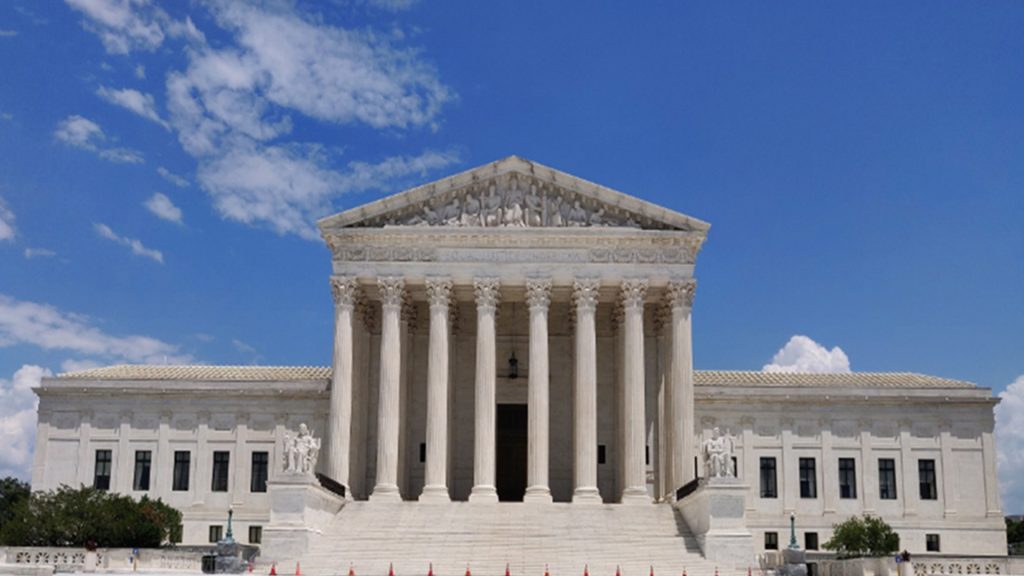
The appeal to the Supreme Court was made by the Metropolitan School District. They believed the court would agree to hear their case. They hoped that the outcome would be a ruling overturning the lower court decision against the school district. The court’s decision came as a shock and a disappointment and stopped the case’s progress through the appeals system.
A.C.’s Point Of View
The Seventh Circuit Court of Appeals pointed out in its decision that the school made some accommodations by allowing A.C. extra time to get from the clinic bathroom to his classes. They also noted that the school offered to allow A.C. to attend school virtually, an option he declined. He wanted to attend school with his peers.

For a while, A.C. used the boys’ bathroom in defiance of the school rule. His fellow students didn’t seem to mind. The trouble started when a staff member reported him. The school confronted A.C. and told him that he would be subjected to disciplinary action if he continued to defy the school’s rule and use the boys’ bathroom.
What’s Title IX Got To Do With It?
You might be wondering what Title IX is and what it has to do with who gets to use which bathroom. Title IX was a landmark 1972 law that prohibits discrimination on the basis of sex. It applies to any school that receives federal assistance for its programs. It’s most commonly cited in relation to girls’ and women’s sports.

The ACLU took A.C.’s case because they believed it was a clear violation of Title IX. A.C. identifies as a boy and was prohibited from using the boys’ bathroom in his school. The accommodation of using the private bathroom in the nurse’s office was seen as insufficient, since it was far from A.C.’s classes.
Why Did The Supreme Court Refuse To Hear The Appeal?
The Supreme Court and its members have the right to hear or not hear a case. They’re not required to provide any explanation or justification for their decision. You might be wondering if they made any comment about the case in Indiana and the school district’s appeal of the circuit court decision.
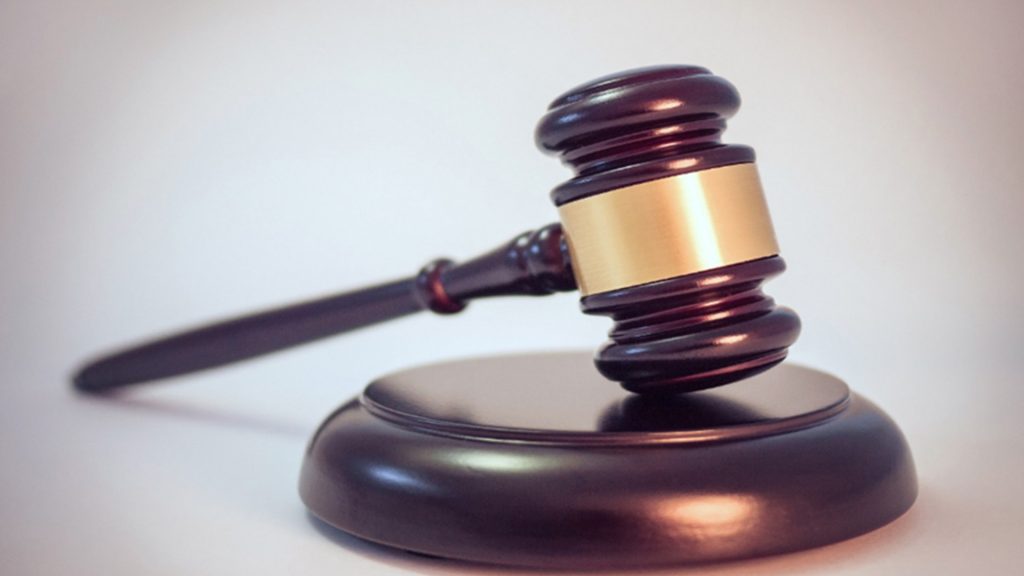
The Supreme Court didn’t offer any explanation or comments about their decision not to hear the case. Some experts believe that Title IX provides the answer. As a well-established federal law, Title IX has set a strong precedent for protecting students against sex discrimination. It may simply be that the Supreme Court has no intention of attacking Title IX.
How Did The Metropolitan School District Respond?
Since the Metropolitan School District made the decision to appeal their case to the Supreme Court, it shouldn’t surprise anybody that they had strong feelings about the court’s decision. When the court announced it wouldn’t be hearing their appeal, they released a public statement about their disappointment. Eric Bowlen, the Metropolitan School District of Martinsville Superintendent, spoke to Newsweek.
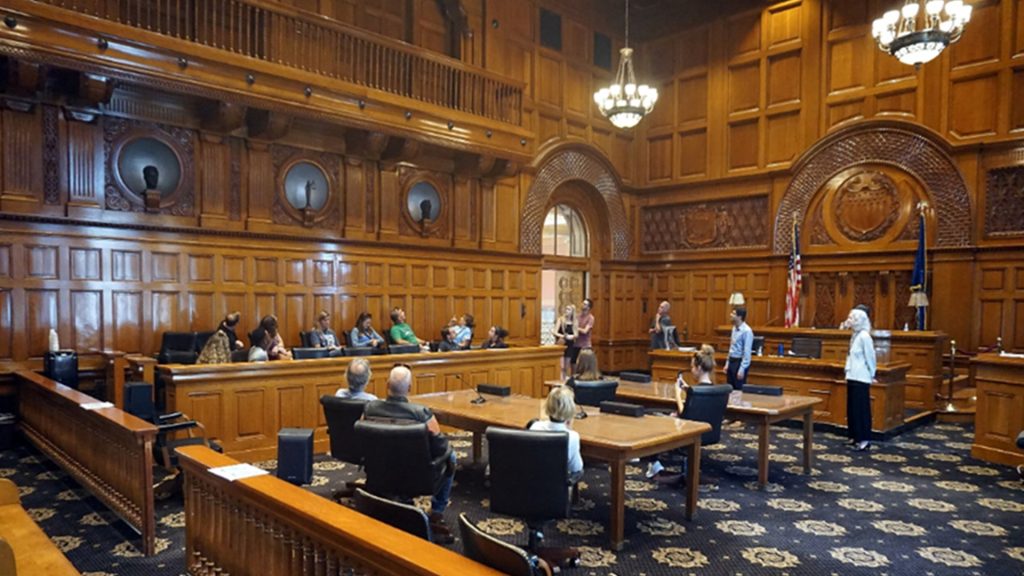
In his statement, Bowlen said the district was “deeply disappointed that the U.S. Supreme Court has denied its petition to resolve an issue that has divided federal courts and left school districts across the country in disarray.” Bowlen is right that there have been other cases, but the issue of disarray is one that’s open to interpretation.
What Happens Next?
You might be wondering what happens next for A.C. and the Metropolitan School District. It’s too soon for there to be any real indication of what might come next. That said, the Supreme Court’s refusal to hear the case means that another appeal is impossible. The expectation is that A.C. will continue to use the boys’ bathroom.

Since A.C.’s use of the boys’ bathroom doesn’t appear to have been an issue for his fellow students, the only issue is whether school staff will continue to have a problem. In the absence of any student complaints, it’s unlikely that anything needs to change.
The Target Transgender Bathroom Controversy
You might remember that back in 2016, there was a controversy when Target, a huge retail chain, stepped into the fray to argue in favor of transgender rights. They announced that transgender guests and employees were encouraged to use the bathroom that aligned with their gender identity.

Their decision led to some boycotts. That said, the boycotts do not appear to have negatively impacted Target’s profits. The company experienced a decrease in profits in 2023, but that appears to be due to inflation and not to the trans bathroom issue. In fact, some people prefer Target because they stood up for transgender rights.
The Future Of Trans Rights
It’s natural to wonder what will happen with trans rights in the future. There are some who want to turn the issue into a cultural war. The people who insist on rigid bathroom rules may want to roll back the legality of same sex marriages, which have been federally protected since 2015 by the Supreme Court Case Obergefell v. Hodges.
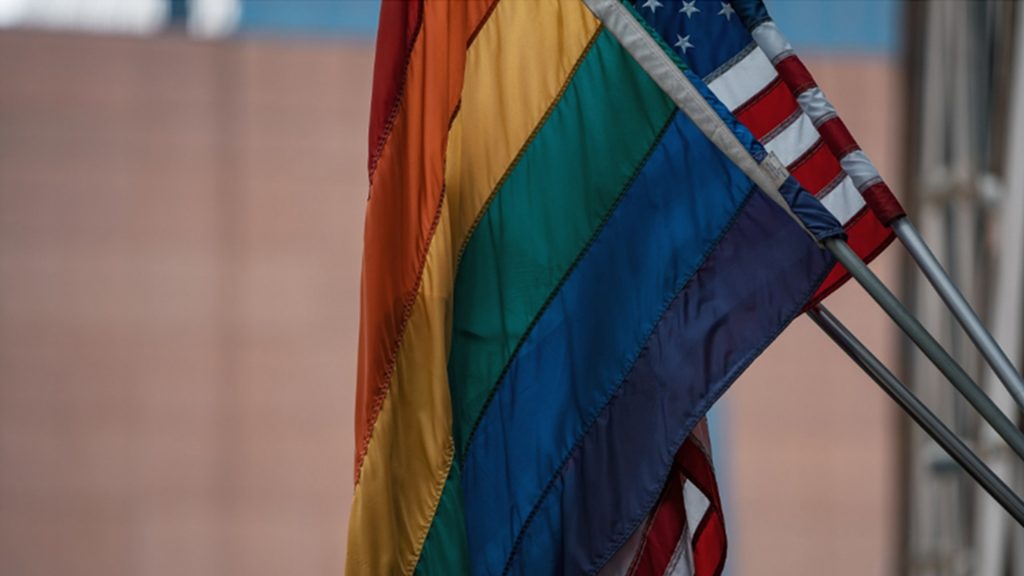
The overall trend of history tends to be toward acceptance and understanding of people who are different from ourselves. The United States may be caught in a pattern of “two steps forward and one step back.” That said, most people seem to believe that others should be able to live their lives as they please.
How Much Do Bathrooms Matter?
Nobody should be afraid when they go to use the bathroom. We’re all human and we all need facilities that are clean and safe. There are few incidents on record of a transgender person threatening or harming someone when using the bathroom that aligns with their gender identity. It seems unlikely that the Supreme Court will overturn Title IX.
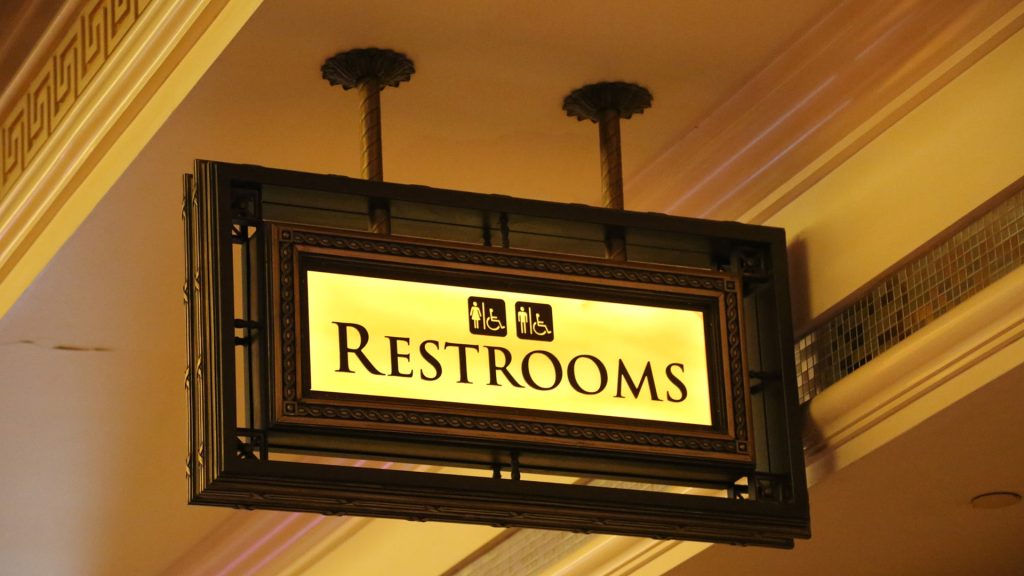
One solution might be to make sure there are private stalls in every public bathroom. That way, anybody who wants to can have the privacy they deserve. Another option is to install unisex bathrooms to eliminate the issue and avoid controversy.

